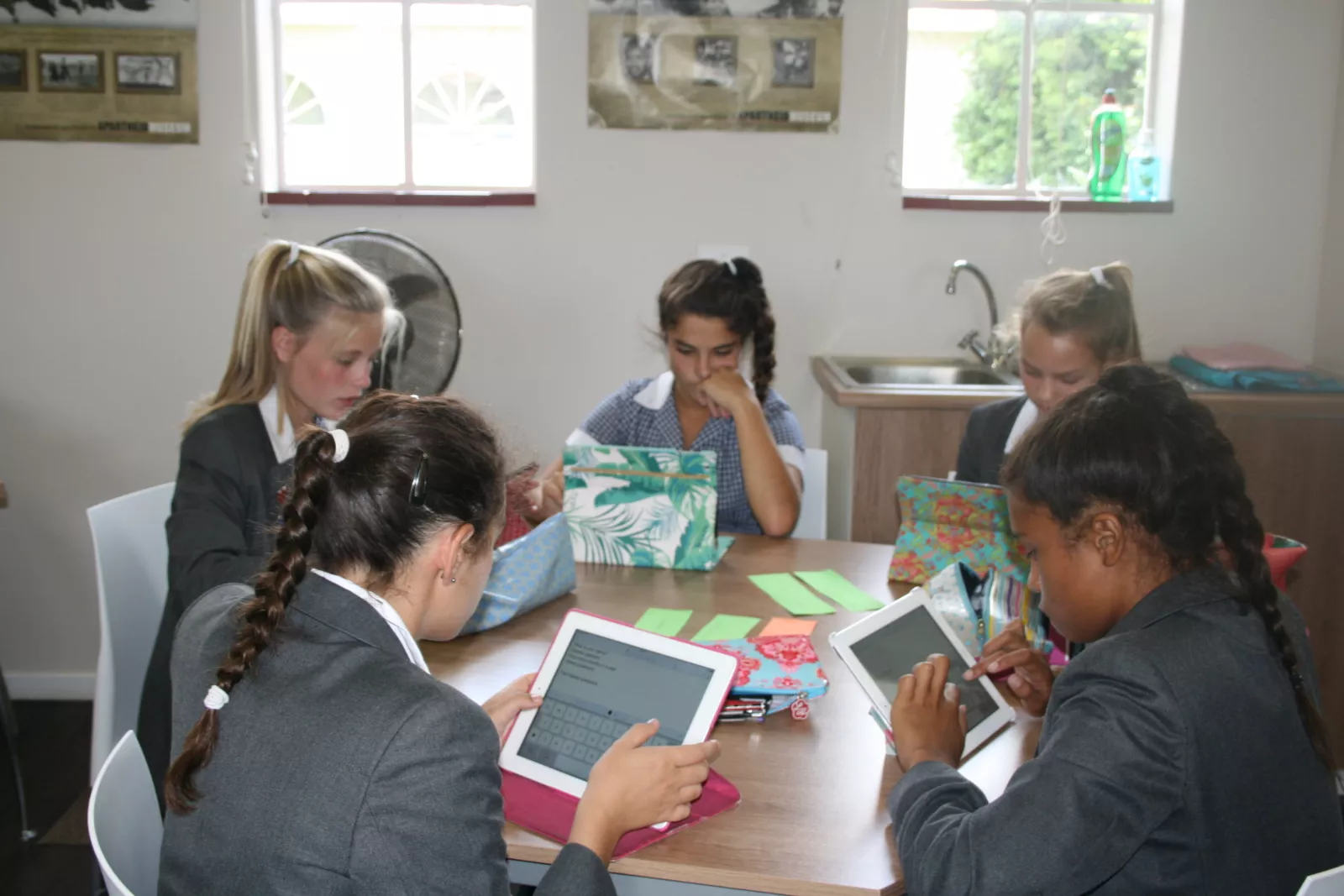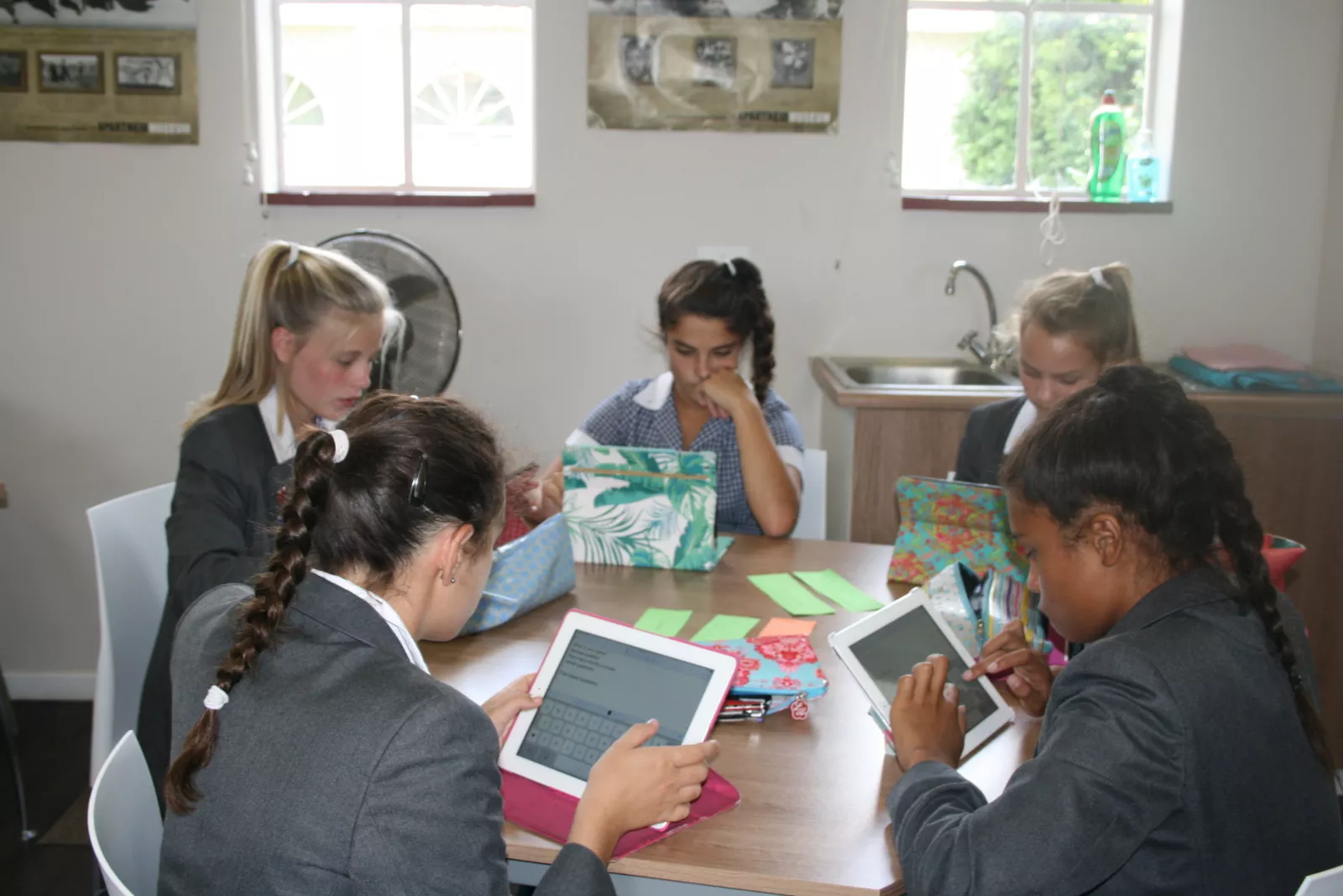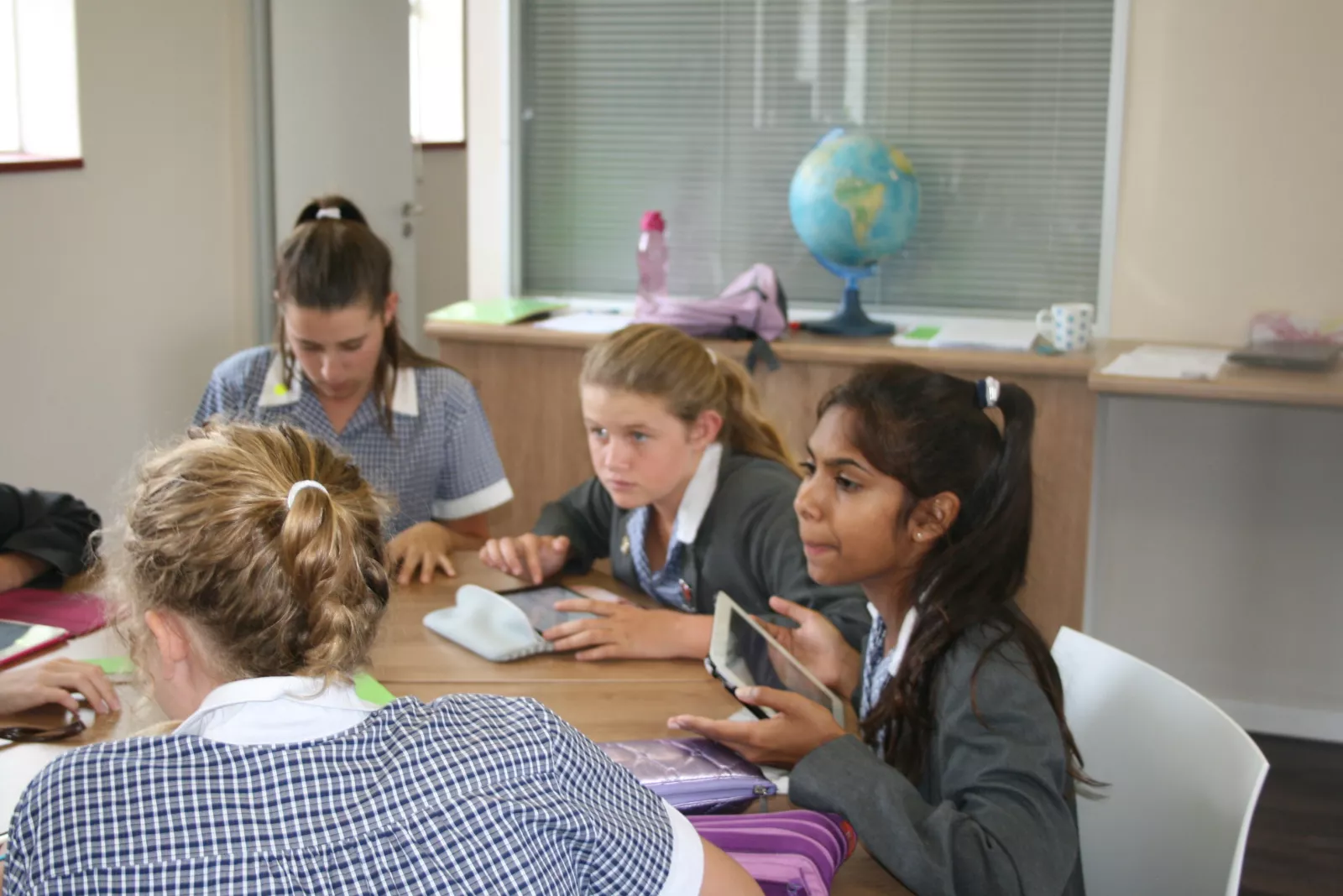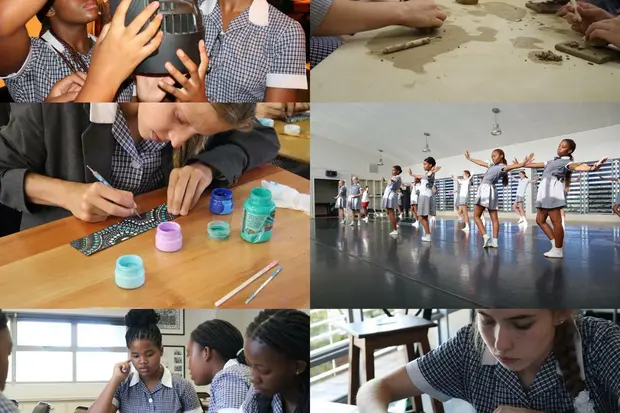E4 “Questions are the new answers”

Internationally 8 to 14 March is celebrated as “Question week” which appropriately coincides with Einstein’s birthday on 14 March. Considering this, I thought it apt to reflect on the importance of asking questions and the emphasis placed on this skill with the Form I girls in their e4 programme.
Einstein valued the importance of asking questions and problem solving as key to the learning process; this principle being equally valued by the e4 teachers. Asking insightful and meaningful questions is critical to the necessary preparation of our girls’ skill set as they move into an exciting and fluid future which will require them constantly to adapt to change and reinvent themselves in order to remain successful, competitive and in-tune with the needs of society.
To launch our commitment to developing the skill of questioning, we played the “question game” which involved pupils having to write down what they understood to be an easy question on the one side of a piece of card and, on the other side, what they interpreted as a difficult question. Pupils then had a few minutes of interactive time when they posed these questions to each other and their teachers. There was lots of laughter and chatter, especially when the personal questions were posed around the teacher’s age! Thereafter the main aim of the activity was to classify questions which required careful thought, involved much debate and importantly encouraged thinking about questions.
Through the process, girls were introduced to the concept of “fat and skinny” questions, most colloquial in their categorisation, but metaphorically correct in assisting girls with understanding the differences between a typical close-ended question, requiring a single factual response, being termed “skinny”; and a rich, meaningful open-ended question being termed “fat”.
At St Mary’s, girls will be exposed to many “fat” questions during lessons and their broader decision making during their time in the Senior School. Schwartz (2012) in her Blog post entitled “For students why the question is more important than the answer” notes how coming up with the right question involves rigorously thinking about the problem, from a number of different angles, in order to get to the heart of the matter. This is our goal as an e4 team: to provide the foundational questioning skills in a safe environment. This includes leading our girls and engaging them in the correct questioning and thinking about questioning, instead of doing the questioning on their behalf. Ultimately the quest is for the question and not for the answer – which is a paradigm shift for pupils and teachers alike.
Warren Berger, author of “A More Beautiful Question” provides us with food for thought as to how to become better questioners ourselves. Perhaps these eight points can be a personal thinking challenge for International Question week.
- Questioners pay close attention to the world around them. They watch and try to notice details others miss. They listen closely to what others are saying, which helps them understand what questions to ask.
- Questioners don’t assume or accept (as in, “that’s the just the way things are.”). They ask, “Why are things that way?”
- Questioners are unafraid to ask the most basic questions — even if some people may think those questions are obvious or naïve. Asking the fundamental questions can help the questioner to challenge assumptions.
- Questioners dig deep. They use follow-up questions to get to the real heart of the matter.
- Questioners use their imagination to pose “what if” questions which open up fresh new possibilities and ideas. (What if we look at this upside down? What if we combine X and Y?)
- Questioners share their questions with others — to get help and ideas from people who are interested in the same question. (How might we figure this out together?)
- Questioners don’t always expect to get answers right away. Sometimes you must “live with” an important question — and spend time thinking about it, working on it, grappling with it.
- Questioners move from asking to action. Start with why, move to what if, and try to get to how — as in, how can we do something, anything, that will help us get a little closer to an answer?
11 February 2015
CARING THINKING AND THE e4 CODE OF CARE
Love, community and integrity are the values to which our St Mary’s community ascribe to on a daily basis. Within each of these values, the notion of care comes to mind. This year with the introduction of the new e4 curriculum, caring thinking has been premised as one of the key principles guiding the teaching and learning experience with the Form I girls.
Caring thinking was formally introduced in 1994 and recognised as a form of thinking by the well-respected educational philosopher Matthew Lipman, who is perhaps best known for his research and writing on Philosophy for Children. Little work has been done on the notion of caring thinking, but more than ever, as we head into the 21st century where morals and values are continuously being challenged, are our girls required to be caring thinkers.
Caring stems from the heart and values in each of us. Caring thinking empowers pupils to establish a sound value system from which to make appropriate and compassionate, value judgements. Caring involves the conversion of feelings into choice, decision and judgment.
As teachers and parents of young adolescents we need to be challenging our girls to think about the kind of world they envisaged themselves being a part of in future. As we are faced with increasing turmoil between nations and religious groups, resource shortages and an ailing planet, scenario planners, problem solvers and disaster managers will be required more than ever. With this in mind, we need a future workforce that can think both critically and creatively, and most importantly in a caring manner.
The Form Is have created their own code of care so as to guide their pathway through the e4 programme. It is our hope that caring thinking will become a way of thinking and means of judgement in our girls’ decision making across all subjects, activities and importantly dealings with friends, teachers and parents.
Caring involves having conversations with meaning and substance. I should like to challenge our parents to have such conversations with their daughters. The Form I code of care is published below; perhaps a conversation starter next time you are around the dinner table?
- Acknowledge people when they are speaking
- Avoid being judgemental
- Avoid cyber bullying on social media
- Be committed to your group and give 100% all the time
- Be considerate - help those who might be struggling
- Be encouraging of whole class participation
- Be helpful
- Be inclusive
- Be prepared for each lesson - don't come empty handed
- Be responsible for your actions and mistakes
- Be sensible
- Be sensitive and compassionate towards others
- Be supportive of others
- Continue to persevere no matter how tough things may get
- Demonstrate a growth mind set
- Demonstrate patience and understanding
- Defend others when they cannot defend themselves
- Develop a sense of understanding
- Encourage others to be the best that they can be
- Have a positive attitude
- Have an active voice - but be respectful
- Have an open mind
- Have an open understanding towards others
- Listen and respect other people's opinions
- Listen to each other
- Listen with “open ears”
- Never be afraid to contribute your ideas
- Respect the people and the environment around you
- Take everyone's ideas/opinions into consideration
- Take pride in your work - hand in homework that you are proud of


Related News

From the Senior School head's desk: 31 January 2025

Cellphone-free academic time

Cultural clubs
